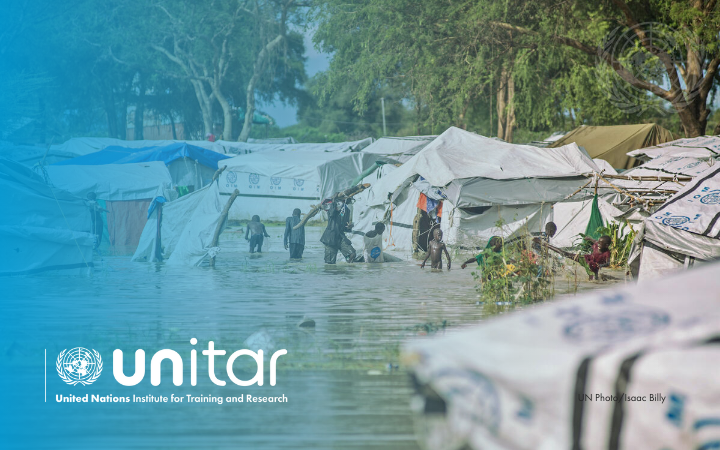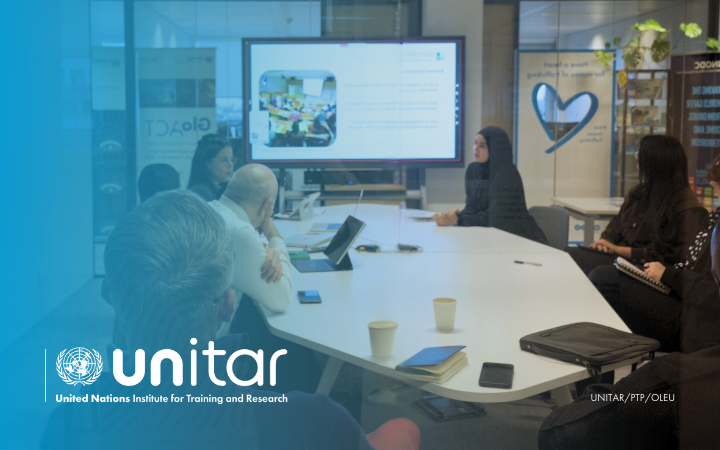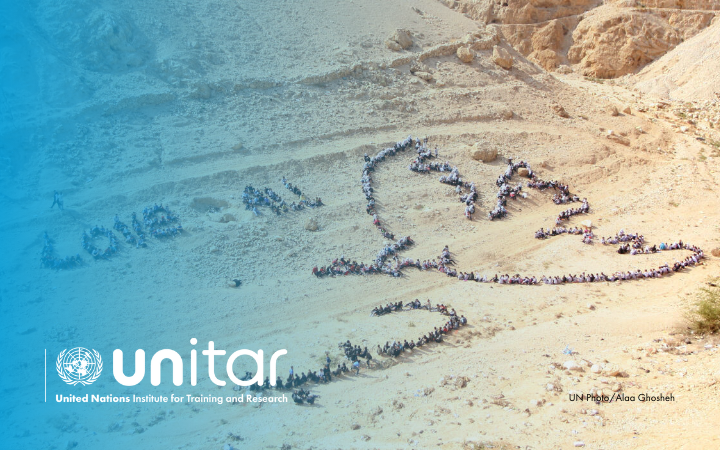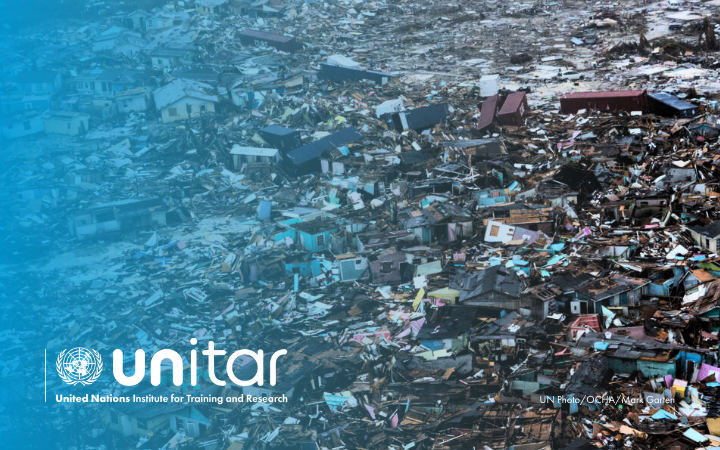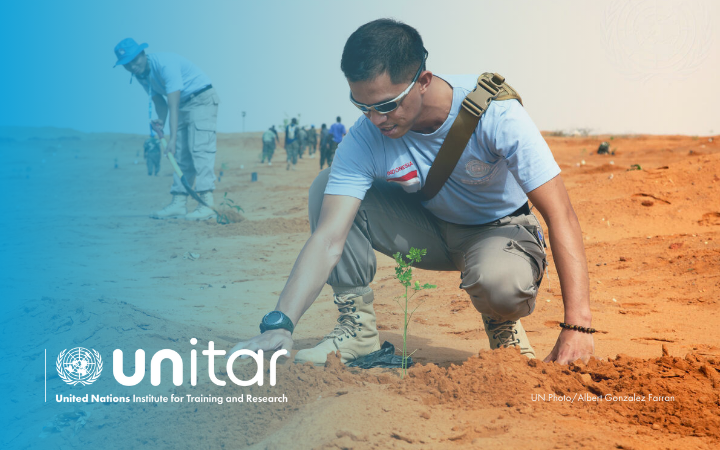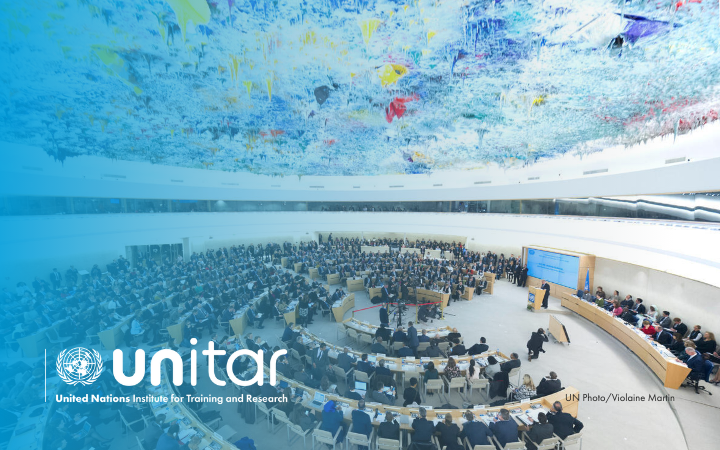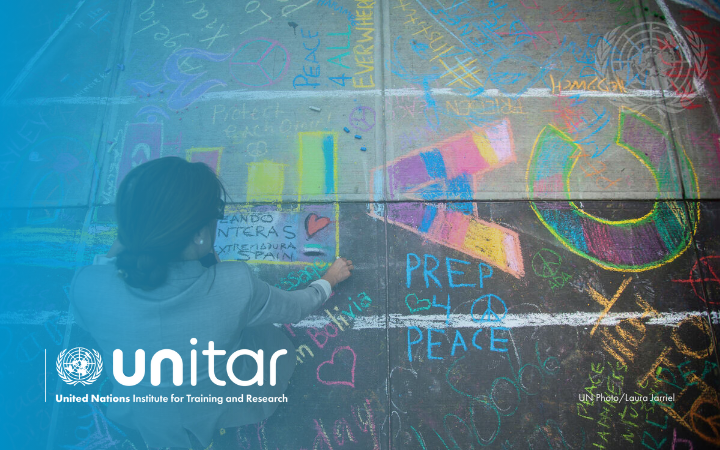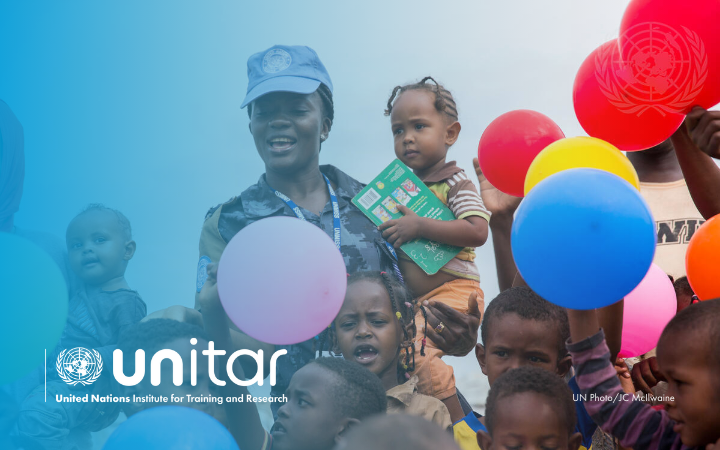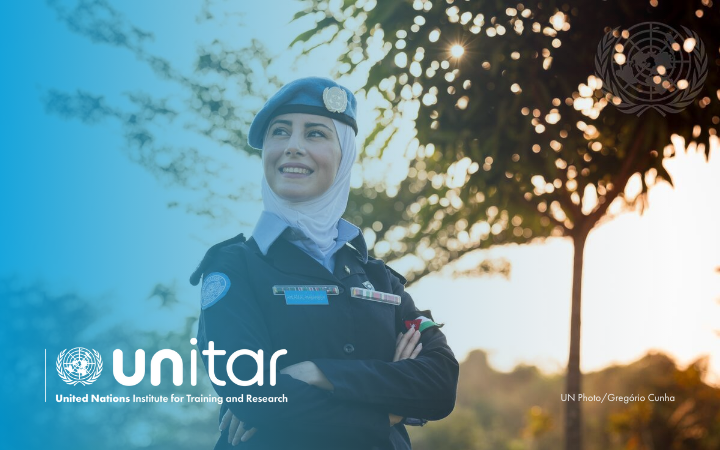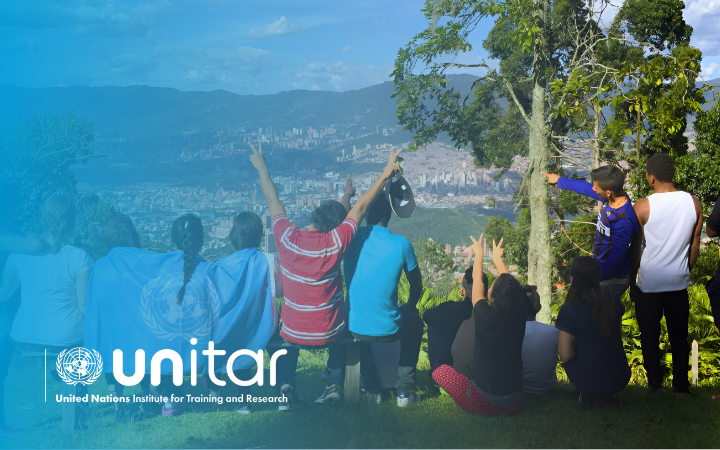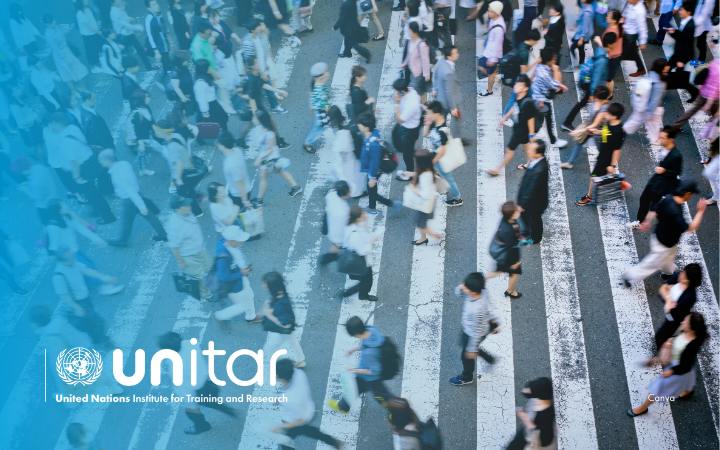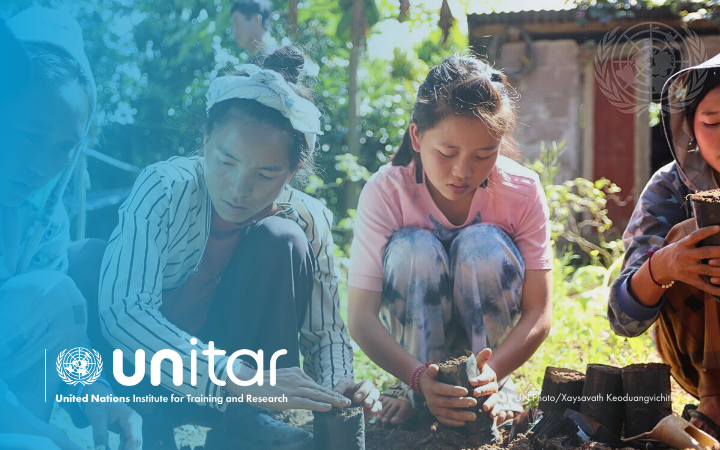UNITAR’s Massive Open Online Courses (MOOCs) offer accessible and flexible learning experiences on critical topics related to conflict resolution, peace, and security. Available on a rolling basis throughout the year in English, French, and Spanish, these courses contribute to SDG 4 by fostering inclusive, high-quality education.
The MOOCs enhance learners’ understanding of crucial issues like Climate Action (SDG13) and Justice (SDG16), fostering critical thinking and practical skills. These courses empower individuals to apply their knowledge, making tangible contributions to global peacebuilding efforts, sustainable development, and addressing complex challenges in conflict and peace contexts.
The MOOCs are ideal for:
- Professionals in conflict, peace, and security sectors.
- Policymakers, humanitarian workers, and academics.
- Learners interested in SDGs and global peacebuilding.
- Anyone looking to develop practical skills for peace and security interventions.
CONFLICT SERIES
Courses on managing disputes and fostering peace.
What is Conflict?
The average work time is estimated at 4 hours. Read More→
- The meaning of conflict.
- Sources of conflict.
- Complexity of conflict.
- Evolution of conflict.
- Actors in conflict.
Conflict Analysis
The average work time is estimated at 2 hours. Read More→
- From conflict to peace.
- Link to conflict analysis.
- Theories of transition from conflict to peace.
- Conflict Negotiation.
- Conflict Mediation.
- Humanitarian Negotiation.
- UN Conflict Resolution.
From Conflict to Peace
The average work time is estimated at 2 hours. Read More→
- From conflict to peace.
- Link to conflict analysis.
- Theories of transition from conflict to peace.
- Conflict Negotiation.
- Conflict Mediation.
- Humanitarian Negotiation.
- UN Conflict Resolution.
ENVIRONMENTAL SERIES
Courses addressing climate action and sustainable practices.
Introduction to Environment, Natural Resources and UN Peacekeeping Operations
The average work time is estimated at 2 hours. Read More→
- Introduction to the learning objectives and key concepts.
- Seven main reasons to care about environment and natural resources in peacekeeping operations.
- What can we do to address environment and natural resource challenges at the field level?
Environment, Natural Resources and UN Peacekeeping Operations: Restoring the Governance of Natural Resources
The average work time is estimated at 2-3 hours. Read More→
- Introduction to key concepts and definitions.
- Review of the linkages among natural resources and conflict and peacebuilding, respectively.
- Outline of how natural resources considerations have been integrated into UN peace and security operations.
- Introduction to the good governance of natural resources.
- Review of what peacekeeping operations can do to address the governance of natural resources in conflict-affected and post-conflict societies.
STAND-ALONE COURSES
Introduction to Security Sector Reform
The average work time is estimated at 2 hours. Read More→
- Introduction to the Concept of Security Sector Reform.
- Understanding the SSR Context.
- Key Actors and Coordination of SSR Processes.
- International Support to an SSR Process.
Milestones in UN Peacekeeping
The average work time is estimated at 4 hours. Read More→
- First Generation Peacekeeping: The Cold War (1945 – 1987)
- Second Generation Peacekeeping: Following the Cold War (1988 – 1996)
- Third Generation Peacekeeping: Peace Support Operations (1997 – present)
- Fourth Generation Peacekeeping: The Next Twist
Confronting Trauma
The average work time is estimated at 1 hour. Read More→
- Psychological stress and trauma.
- The global burden of trauma.
- Traumas – prevention and treatment.
- Scaling up trauma therapy.
- Towards a world plan for trauma treatment.
Strengthening Civilian Capacities to Protect Civilians: Unarmed Civilian Protection
The average work time is estimated at 1 hour. Read More→
- Introduction to Unarmed Civilian Protection (UCP).
- UCP: Objectives, principles and sources of guidance.
- UCP: Key methods.
- UCP in practice: Preparation and entrance into the community.
- UCP in practice: Living in and exiting the community.
Gender Matters
The average work time is estimated at 2 hours. Read More→
- Defining gender.
- Sex vs gender.
- Gender as a social construct.
- Gender as a shared identity.
- Gender as order.
- Gender as power hierarchy.
- Gender stereotypes.
- The UN approach to gender.
Youth and Peacebuilding
- Key concepts of youth, peace, and UN initiatives in peacebuilding.
- Challenges of youth populations in conflict and post-conflict settings.
- Youth populations’ potential for peacebuilding and important aspects of peacebuilding projects.
- Inclusion and empowerment of youth populations in peacebuilding.
- Best practices of project design for sustainable peacebuilding.
WELL BEING FOR PEACE SERIES
Courses aimed at personal development and mental health.
Understanding and Transforming Stress
The average work time is estimated at 1-2 hours. Read More→
- Understanding stress.
- Transforming stress.
The Inside Job of Collaboration
The average work time is estimated at 2-3 hours. Read More→
- Basic frame for collaboration.
- Bridging the collaboration gap.


